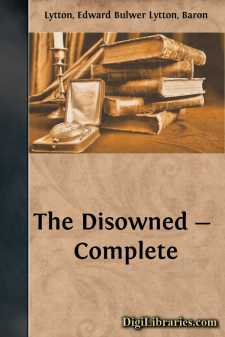Fiction
- Action & Adventure 180
- Biographical 15
- Christian 59
- Classics
- Coming of Age 5
- Contemporary Women 3
- Erotica 8
- Espionage/Intrigue 12
- Fairy Tales, Folklore & Mythology 236
- Family Life 169
- Fantasy 117
- Gay 1
- General 596
- Ghost 32
- Historical 808
- Horror 43
- Humorous 160
- Jewish 25
- Legal 4
- Medical 22
- Mystery & Detective 315
- Political 49
- Psychological 41
- Religious 64
- Romance 159
- Sagas 11
- Science Fiction 730
- Sea Stories 113
- Short Stories (single author) 537
- Sports 10
- Suspense 1
- Technological 8
- Thrillers 2
- Urban Life 31
- Visionary & Metaphysical 1
- War & Military 173
- Westerns 199
Classics Books
Sort by:
by:
John Black
MEMOIR OF THE LITERARY LIFE OF AUGUSTUS WILLIAM VON SCHLEGEL AUGUSTUS WILLIAM VON SCHLEGEL, the author of the following Lectures, was, with his no-less distinguished brother, Frederick, the son of John Adolph Schlegel, a native of Saxony, and descended from a noble family. Holding a high appointment in the Lutheran church, Adolph Schlegel distinguished himself as a religious poet, and was the friend...
more...
CHAPTER I. Who art thou, fair one, who usurp'st the placeOf Blanch, the lady of the matchless grace?—LAMB. IT was towards the evening of a day in early April that two ladies were seated by the open windows of a cottage in Devonshire. The lawn before them was gay with evergreens, relieved by the first few flowers and fresh turf of the reviving spring; and at a distance, through an opening amongst...
more...
by:
Edward Agate
Rimsky-Korsakov had long been engrossed in his treatise on orchestration. We have in our possession a thick note book of some 200 pages in fine hand writing, dating from the years 1873-1874, containing a monograph on the question of acoustics, a classification of wind instruments and a detailed description of the construction and fingering of the different kinds of flute, the oboe, clarinet and...
more...
CHAPTER I. THE MOORS OF SPAIN. Conquest of Spain by the Arabs.—Slow Recovery by the Spaniards.—Efforts to convert the Moslems.—Their Homes in the Alpujarras.—Their Treatment by the Government.—The Minister Espinosa.—Edict against the Moriscoes.—Their ineffectual Remonstrance. 1566, 1567. It was in the beginning of the eighth century, in the year 711, that the Arabs, filled with the spirit...
more...
by:
John Lord
CHATEAUBRIAND. 1768-1848. THE RESTORATION AND FALL OF THE BOURBONS. In this lecture I wish to treat of the restoration of the Bourbons, and of the counter-revolution in France. On the fall of Napoleon, the Prussian king and the Austrian emperor, under the predominating influence of Metternich, in restoring the Bourbons were averse to constitutional checks. They wanted nothing less than absolute...
more...
by:
John Dryden
EPISTLES. EPISTLE I. TO MY HONOURED FRIEND SIR ROBERT HOWARD,[1] ON HIS EXCELLENT POEMS. As there is music uninform'd by art In those wild notes, which, with a merry heart, The birds in unfrequented shades express, Who, better taught at home, yet please us less: So in your verse a native sweetness dwells, Which shames composure, and its art excels. Singing no more can your...
more...
by:
Robert M. Vogel
The 1,000-foot tower that formed the focal point and central feature of the Universal Exposition of 1889 at Paris has become one of the best known of man’s works. It was among the most outstanding technological achievements of an age which was itself remarkable for such achievements. Second to the interest shown in the tower’s structural aspects was the interest in its mechanical organs. Of these,...
more...
by:
Hugh McHugh
CHAPTER I. JOHN HENRY'S LUCKY DAYS. Seven, come eleven! After promising Clara J. that I would never again light a pipe at the race track, there I stood, one of the busiest puff-puff laddies on the circuit. Well, the truth of the matter is just this: I fell asleep at the switch and somebody put the white lights all over me. Just how I happened to join the Dream Builders' Association I...
more...
by:
George MacDonald
PREFACE By this edition of HAMLET I hope to help the student of Shakspere to understand the play—and first of all Hamlet himself, whose spiritual and moral nature are the real material of the tragedy, to which every other interest of the play is subservient. But while mainly attempting, from the words and behaviour Shakspere has given him, to explain the man, I have cast what light I could upon...
more...
CHAPTER I. I'll tell you a story if you please to attend. G. KNIGHT:Limbo. It was the evening of a soft, warm day in the May of 17—. The sun had already set, and the twilight was gathering slowly over the large, still masses of wood which lay on either side of one of those green lanes so peculiar to England. Here and there, the outline of the trees irregularly shrunk back from the road, leaving...
more...











